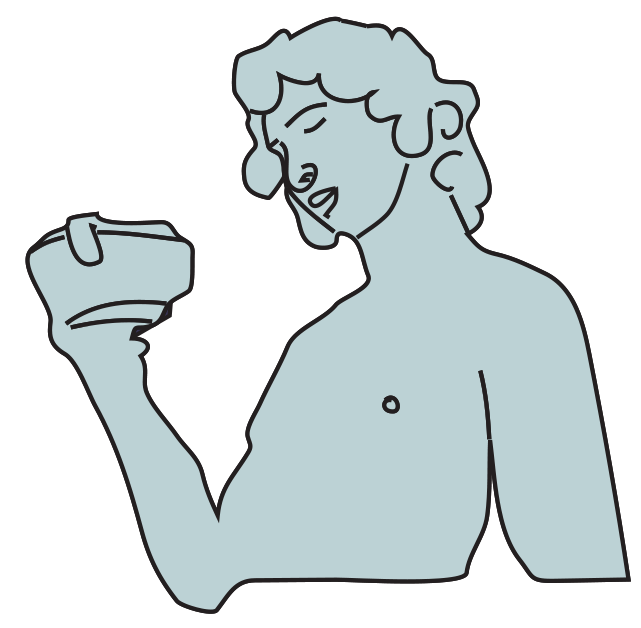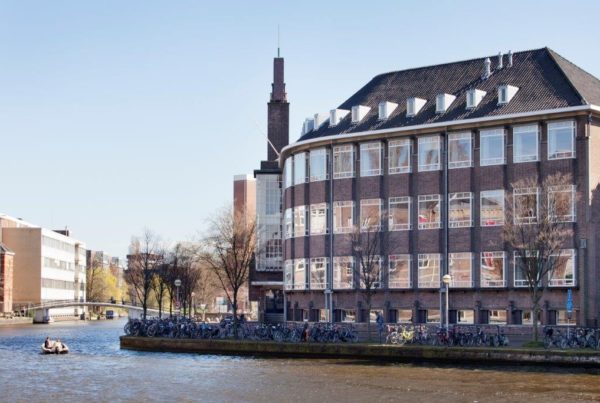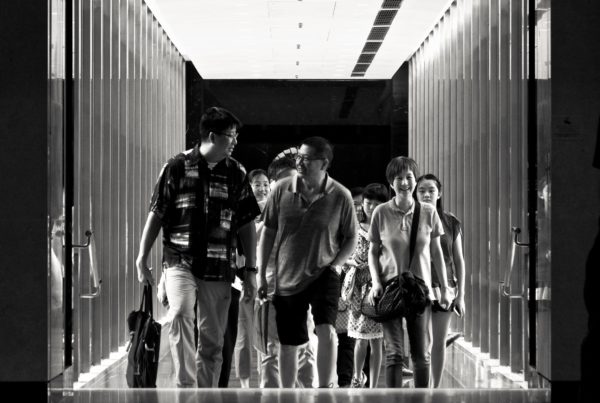

“Be the change you wish to see in the world”. This renowned quote by Mahatma Gandhi resonates at countless graduation ceremonies worldwide. When asking my peers about their dream careers after getting a psychology degree, the answers vary: some want to help others as clinical psychologists while some aim to research the brain’s mysteries. Others want to improve educational policies so every child can thrive in a safe atmosphere. Despite our different paths, many of us share a common goal: to make a positive impact on the world, whether in science or society at large. Meanwhile, I question whether I will ever be qualified enough to leave such a large footprint on the earth.
After three years of hard work, I will have my diploma in hand in one month. Throughout this journey, I have delved deep into human psychology, learning about how inner struggles can dominate one’s lives. From the rapidly increasing workplace burnout to the systemic inequalities plaguing education systems, psychology underpins many of society’s pressing issues. Yet, despite years of studying – from writing papers applying psychological theories to real-world problems – the transition from academia to reality feels daunting. So much so that I decided to stay in academia – mainly because I enjoy it, but partially because I do not feel ready to step into action, feeling unprepared for the challenges ahead.
The vastness of the world’s and each individual’s problems feels beyond overwhelming, and I often feel unsure of how my skills and knowledge will ever be able to contribute to the change I wish to see. The more I open up about this, the more I notice this pressure is not unique to me. To my parents and grandparents, I should be ready to enter the workforce soon. However, I still feel like the same girl who just graduated high school, staring up at a daunting mountain with no clear path to the summit. I want to help change people’s lives as a psychologist one day, but will I ever be confident that I can make a lasting impact on the world? Will a further degree or enough work experience do the trick – or is expecting to change someone’s life or the world an unrealistic endeavour?
Many new insights and perspectives have been shown to me in the last three years of studying, opening my eyes to incredible avenues to make societal contributions. However, perhaps it is okay to start small, to take things one step at a time, and to see where our skills and talents take us. We might redefine what it means to be an expert in neuroscience, develop innovative clinical therapies, or reform the education system of our home country. Or we might do none of these things. Instead, our footprint might be far subtler, invisible to most, but life-changing to some. Our contributions could lay the groundwork for future scientific breakthroughs. We might not completely transform countless people’s lives, but simply make someone’s day a little easier.
Perhaps there is no answer to what it takes or when we will be ready to “be the change we wish to see in this world”. We all can make a change, and we all will, whether through groundbreaking innovations or by starting small with small acts of kindness. A quote that I feel might be a little easier for us to aspire to and reduce some of the pressure we might feel is that we should “not [aim to] change the world exactly, but the bit around [us]. Stay true to [our] principles, live passionately and fully and well” (David Nicholls – Author of One Day).

“Be the change you wish to see in the world”. This renowned quote by Mahatma Gandhi resonates at countless graduation ceremonies worldwide. When asking my peers about their dream careers after getting a psychology degree, the answers vary: some want to help others as clinical psychologists while some aim to research the brain’s mysteries. Others want to improve educational policies so every child can thrive in a safe atmosphere. Despite our different paths, many of us share a common goal: to make a positive impact on the world, whether in science or society at large. Meanwhile, I question whether I will ever be qualified enough to leave such a large footprint on the earth.
After three years of hard work, I will have my diploma in hand in one month. Throughout this journey, I have delved deep into human psychology, learning about how inner struggles can dominate one’s lives. From the rapidly increasing workplace burnout to the systemic inequalities plaguing education systems, psychology underpins many of society’s pressing issues. Yet, despite years of studying – from writing papers applying psychological theories to real-world problems – the transition from academia to reality feels daunting. So much so that I decided to stay in academia – mainly because I enjoy it, but partially because I do not feel ready to step into action, feeling unprepared for the challenges ahead.
The vastness of the world’s and each individual’s problems feels beyond overwhelming, and I often feel unsure of how my skills and knowledge will ever be able to contribute to the change I wish to see. The more I open up about this, the more I notice this pressure is not unique to me. To my parents and grandparents, I should be ready to enter the workforce soon. However, I still feel like the same girl who just graduated high school, staring up at a daunting mountain with no clear path to the summit. I want to help change people’s lives as a psychologist one day, but will I ever be confident that I can make a lasting impact on the world? Will a further degree or enough work experience do the trick – or is expecting to change someone’s life or the world an unrealistic endeavour?
Many new insights and perspectives have been shown to me in the last three years of studying, opening my eyes to incredible avenues to make societal contributions. However, perhaps it is okay to start small, to take things one step at a time, and to see where our skills and talents take us. We might redefine what it means to be an expert in neuroscience, develop innovative clinical therapies, or reform the education system of our home country. Or we might do none of these things. Instead, our footprint might be far subtler, invisible to most, but life-changing to some. Our contributions could lay the groundwork for future scientific breakthroughs. We might not completely transform countless people’s lives, but simply make someone’s day a little easier.
Perhaps there is no answer to what it takes or when we will be ready to “be the change we wish to see in this world”. We all can make a change, and we all will, whether through groundbreaking innovations or by starting small with small acts of kindness. A quote that I feel might be a little easier for us to aspire to and reduce some of the pressure we might feel is that we should “not [aim to] change the world exactly, but the bit around [us]. Stay true to [our] principles, live passionately and fully and well” (David Nicholls – Author of One Day).



